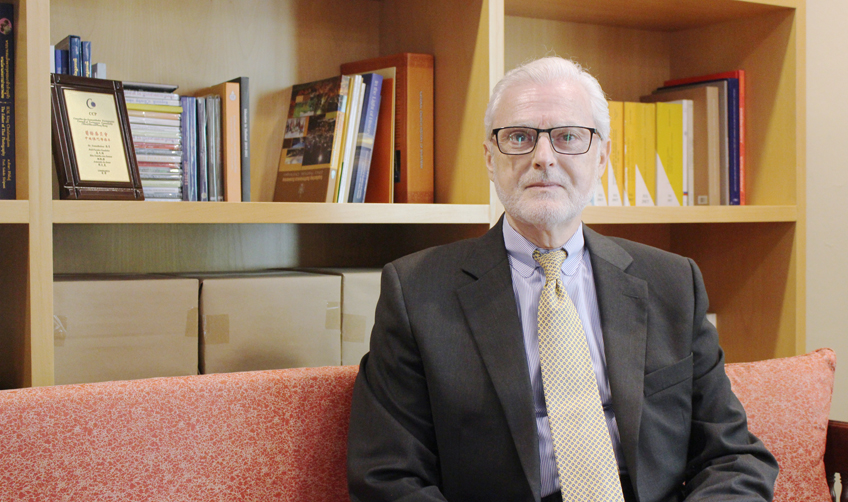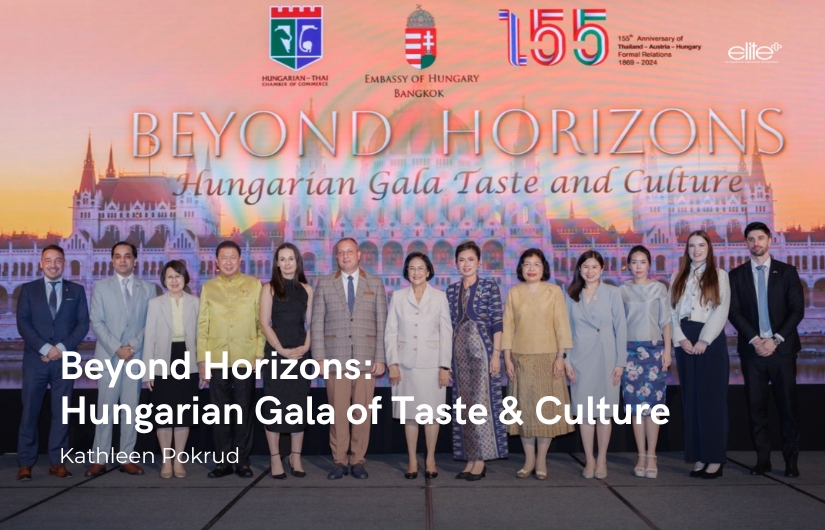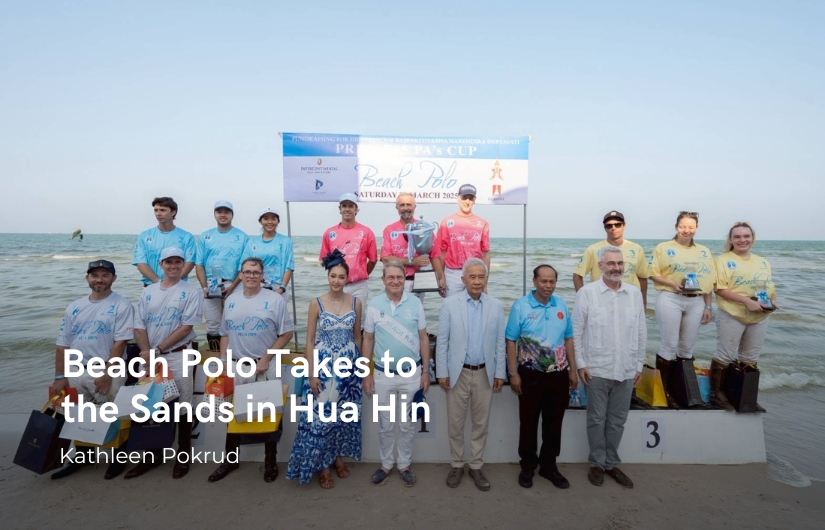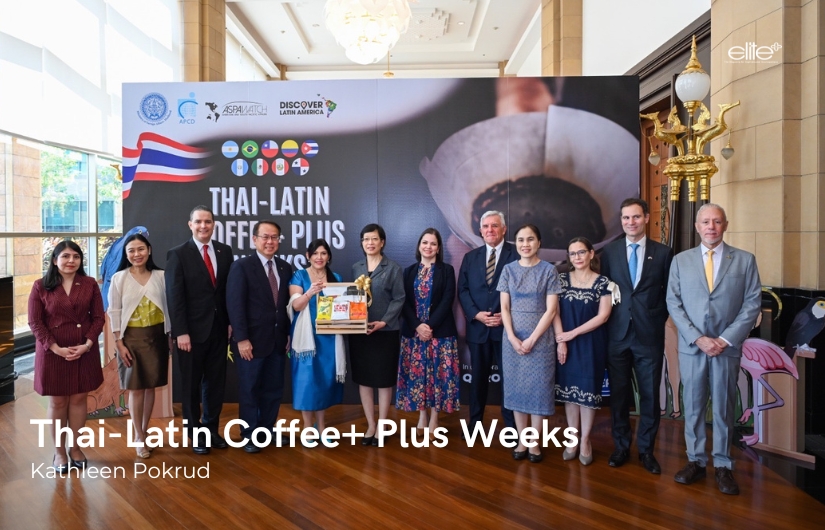As relations between Portugal and Thailand continue to grow stronger, HE Joao-Bernardo Weinstein, ambassador of Portugal to Thailand, recently took time to discuss the very long and expansive business, trade and cultural relations between Portugal and Thailand with Elite+. HE Joao-Bernardo Weinstein, Portugal’s ambassador to Thailand, arrived in Bangkok in January 2021 to assume his post after an already extensive diplomatic career of 35 years. He has had overseas postings in the United Kingdom, Austria, Cyprus, India, Italy and Germany and served as ambassador to Romania, Moldova and Israel.
- Portugal and Thailand celebrated 500 years of diplomatic relations in 2011 and in 2018 marked the signing of the first Pact of Friendship and Trade half a millennium ago as well. Could you tell us how these have evolved?
As allies for so many years, we have become very close and dear friends. Portugal arrived in Ayutthaya in 1511 and our relations have evolved ever since. Siam was the first kingdom in Southeast Asia with which we formally established ties. Many descendants of those early visitors occupied important positions in the Siamese administration.
In the nineteenth and twentieth centuries, when Western imperialistic powers were building their empires, Siam had to use all its diplomatic skills to maintain its independence and friendly contacts with those powers. In Portugal’s case – as mentioned by the former minister of Foreign Affairs of Thailand, Kaisit Piromya, in his Forward of the anniversary book “500 years of Thai-Portuguese Relations: A Festschrift” – relations were simply renewed and continued by the fairly substantial numbers of descendants of Portuguese-Thai progeny.
It was in this period, in 1820, during the reign of His Majesty King Phra Phutthaloetla Naphalai, also known as King Rama II, that the Treaty of Peace, Friendship and Trade with Portugal was signed. Testimony of this excellent relationship is the plot of land that was given to Portugal to establish its consulate in Siam. It is on this very same plot on the bank of the Chao Phraya river that the current premises of the Embassy of Portugal, inaugurated in 1875, are located. With such a prestigious pedigree, the Portuguese Embassy, the first diplomatic mission of a western country in Thailand, has always brought great pride to Portugal. I feel it is a great privilege to live and work in such a wonderful location.
- Could you now tell us about current bilateral trade between Portugal and Thailand?
Portuguese entrepreneurs and investors are now rediscovering this region of the world. It might seem a paradox as we were the first Westerners to arrive in Southeast Asia. In 2020, the value of Portuguese exports to Thailand dropped slightly while Thailand's exports dropped sharply, by around 30%. The Covid-19 crisis has a profound negative effect on our trade. Last year, the trade situation improved considerably and by the end of 2021, the total of imported goods from Portugal increased by 36% compared to the previous year. Thai exports sent to Portugal also increased by an impressive 47% as the same time.
Although Thailand experienced its worst pandemic wave in the third quarter of 2021, Portuguese-Thai trade did recover, surpassing pre-pandemic values. Thailand imported a variety of our products such as auto parts and accessories, garments, paper and processed wood. The main Thai exports to Portugal includes motor vehicles, machinery and mechanical appliances and an array of products made from rubber and synthetic materials. Today, Portugal is being discovered by Thai investors as a land of opportunity. Thai investment has been increasing considerably during the past few years in tourism, recycling industries and oil processing.
- What advice would you give Thai entrepreneurs interested in trading with Portugal?
I would recommend Thais visit Portugal and meet our friendly, modern and vibrant business community. Portugal, as a European Union member enjoys access to a market of well over 500 million people, which makes a very attractive strategic partner. It is also a bridge to Portuguese-speaking nations, like Brazil, Angola, Mozambique, Cape Verde, Guiné-Bissau, São Tomé and East Timor, which represent a huge market of more than 260 million persons. Due to our geographical location and excellent external relations with most countries in the world, one can say that Portugal is ideally placed to serve as a business hub.
- How big would you say the Portuguese community is in Thailand and what are they involved in?
The Portuguese community in Thailand is rather small, actually less than 500 people. Most are retired and live mainly in and around Bangkok. Some work for international corporations or organizations. However, the number of Portuguese tourists visiting Thailand before the pandemic was increasing quickly, and I am sure they will return once the situation is more stable. Meanwhile, Thai restaurants in Portugal have grown in popularity as Portuguese always enjoy eating well. This also helps to promote Thailand as a tourist destination.
- Now, as conditions improve and restrictions are lifted concerning the Covid-19 pandemic, what types of activities are you planning to promote?
Promoting Portuguese language and culture abroad is one of the priorities of our foreign policy. The Instituto Camões is the branch of the Portuguese MFA in charge of promoting Portuguese language and culture and, here in Thailand, the Portuguese Cultural Centre, Camões, is located at our Embassy. For more than 30 years, Camões has been associated with the Faculty of Arts, Chulalongkorn University, providing a lecturer to teach Portuguese not only to students, but also the general public. In addition to Chulalongkorn University, this lecturer also teaches at Thammasat University as we have an agreement with their Southeast Asian Studies Program. At present, there are around 175 students enrolled in Portuguese courses. This upcoming March, courses of elementary and intermediate Portuguese will be offered to the general public at Chulalongkorn University. Camões has also granted scholarships to Thai students throughout the years.
Our Embassy has also sought to promote Portuguese language and culture through book translations. Currently, there are a number of Portuguese authors translated into Thai, one being our Nobel Prize laureate, José Saramago, whose centenary we are celebrating this year. Our Thai publishing partners include Library House, Bookmoby Press and Thyphoon Books as we try to make Portuguese literature more available to young Thai readers.
Besides literature, the Embassy and Camões Institute have successfully established partnerships with local institutions such as the Friends of the Arts Foundation, with whom we have just finished the very relevant and touching “Movement for Life” project. This has entailed the Portuguese dancer and choreographer, Bruno Sebastião, working with the foundation to produce a series of 12 educational recording to be used in education institutions for students with special needs suffering from autism. We have also been collaborating with the WTF Gallery where exhibitions focus on ecological and human rights issues.
Hopefully we will get back to our regular cultural plan this year, which comprises a series of recitals of classical music, photo exhibitions, dance performances, guided tours to Portuguese heritage locations and landmarks and book readings. We have already launched our Instagram account, Baan Portugal, which helps better connect with the younger generations while at the same time keeping everyone up to date with important information and fun facts.
- Since coming to Thailand, what has impressed you most about the country and its culture?
I do not hesitate to say what has impressed me most is the Thai people. Their good manners and gentleness make our daily life extremely pleasant. As a European and after having lived in so many countries, I have to say that sharing my daily life with Thais reminds me how much we have forgotten about courtesy in our part of the world.
Another thing that has impressed me are Thai aesthetics. The palaces and temples are magnificent; they look like jewels shimmering in the sun. And the city’s gardens and simple way Thais decorate their homes with colourful flowers and lush plants is always a treat. As an urban person, I have found walking through the city is still the best way to discover the culture and local ways of life, and here, these are so diverse. On a more philosophical level, I very much feel that the Buddhist culture, so ever present, greatly contributes to the tolerant attitude displayed by Thai people and the values they cherish.
- Have you been able to travel around the Kingdom and if so, what has impressed you?
I did visit a few places, but I must confess that the pandemic has limited my appetite for travel. Hence, I have been discovering Bangkok, which I tend to do by foot, and its people. I enjoy taking my time to talk to people whenever they speak English – as unfortunately I do not speak Thai. I love to hear what they think and learn and share what we know.
- To conclude, do you have any final thoughts you would like to share with our readers?
One thought immediately comes to mind: no matter how much I travel and people I meet, I always come to the same conclusion, namely, what a big and diverse family we are. Enjoying the same things, cherishing the same values … in the end, I just hope that by discovering more from each other, we will all gain better understanding and acceptance. And after so many years of diplomatic service, meeting people from all over the world and establishing contacts, I hope we can bridge our differences. I do believe that all of us can make a difference in improving our common home and transforming it to be a more inclusive and tolerant world.





















































































































































































































































































































































































































































































































































































































































































































































































































